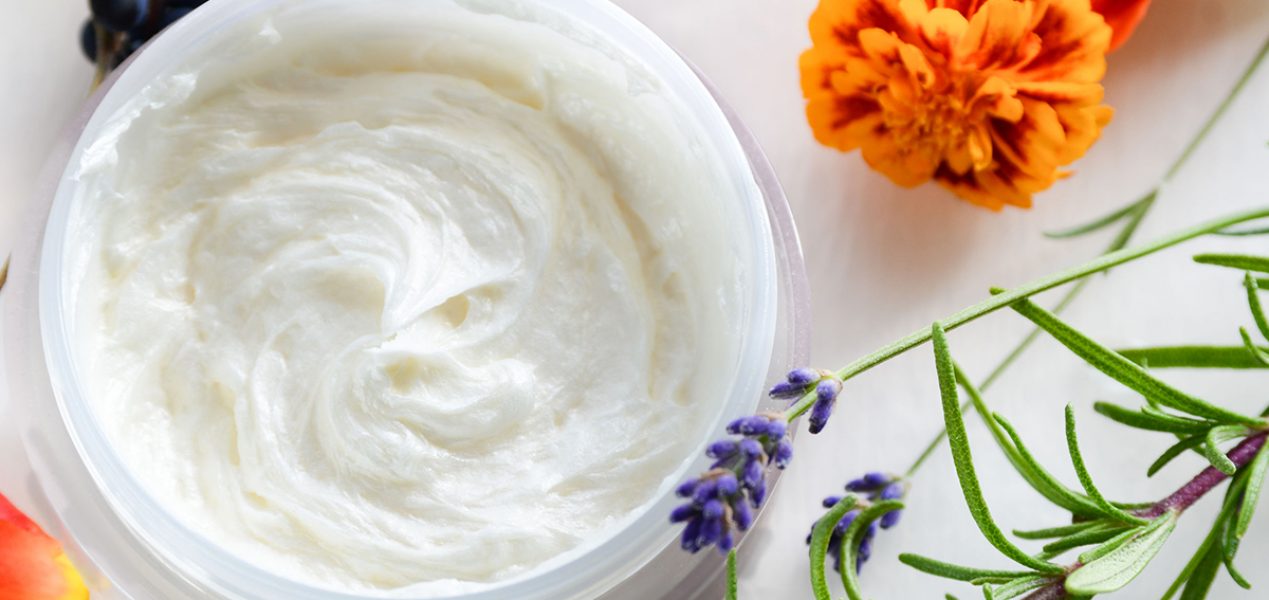Up until the 19th century, all the cosmetics people used were made with natural ingredients.
It was common for women to use their kitchens to make their own remedies for improving their health and hygiene and that of their loved ones. In addition, they used easily found, natural ingredients to make products to accentuate their features.
However, the Industrial Revolution led several companies to start meeting the cosmetic needs of the population at an industrial level by applying chemistry to the manufacture of cosmetic products. They started creating higher quality products than the “concoctions” formulated by housewives.
Soon, large cosmetics companies took over the market thanks to synthetic industrial solutions of homogeneous quality that could be sold in large quantities.
Nevertheless, despite the obvious benefits of chemical cosmetics, since the seventies, the same old story has been circulating throughout current society: that natural cosmetics are better than those synthesised by the chemical industry.
With this article, we aim to explain how this belief is unfounded and how synthetic, chemical-based cosmetics are just as healthy and beneficial as natural ones.
Continue reading if you want to see one of the most entrenched myths and popular beliefs finally rebuffed.
The fallacy of everything ‘bio’ or natural.
As can be seen in this post, the arguments that natural products are better or healthier than chemical-based products lacks all rational foundation.
In fact, substances such as cyanide or ricin (not to mention plants such as Atropa belladona or fungi like Amanita phalloides) are so toxic that they can kill people, despite being completely natural.
This is part of the so-called “natural appeal” through which people believe that all natural products are good for their health while artificial products—or at least chemical ones—are bad or harmful.
In the world of cosmetics, this skewed debate has been taken to the extreme by certain stakeholders who espouse that only cosmetics made with natural ingredients are good for our health.
They also add that cosmetics made with chemical products such as preservatives like parabens or sulfates are dangerous and may be highly damaging to health.
This is known as “naturalistic fallacy”: a cosmetic product is not good or bad simply because it is made up of natural ingredients.
The mistake lies in creating two opposing categories that lead consumers to these kinds of misconceptions.
There are good and bad natural or organic cosmetics on the market just as there are good and bad synthetic, and chemical, cosmetics.
In the end, to know whether a product is beneficial to our health, we must look at its formulation, not its origin.
Natural cosmetics also have some disadvantages
As we’ve seen, we can’t talk about the supposed superiority or virtue of “bio” or organic cosmetics simply because they are made with natural ingredients.
We will now discuss the reasons behind why employing chemistry in the production of many cosmetics is actually very necessary.
For you to understand why chemistry is necessary, we will first have a look at the main inconveniences of natural cosmetics:
- Preserving natural cosmetics is far more complicated: Because some natural cosmetic products lack chemical preservatives, this means that they will deteriorate more quickly, thus affecting their shelf life.
- Natural preservatives are more dangerous: the preservatives that are accepted for use in natural cosmetics are used in larger quantities than the chemical preservatives used in traditional cosmetics. What’s more, often complex blends are required to establish comparable stability.
- Essential oils can cause allergies: Natural cosmetics generally contain a large amount of essential oils, botanical extracts, and aromatic blends. The essential oils used to manufacture these cosmetics can cause allergies and adverse reactions in some individuals (it is estimated that approximately 1-3% of the European population experiences contact allergic reactions to fragrances, many of which are naturally sourced).
- These cosmetics are far more expensive: at times it can be difficult to find a natural product with the specific necessary properties to meet a certain function. In contrast, production costs lower significantly with the use of chemically synthesised substances.
- The ingredients in natural cosmetics are less effective than chemical ingredients: for example, the surfactants used in natural shampoos and shower gels are not as effective at cleansing as synthetic ones, despite generating more foam (one of the common mistakes is believing that the greater the amount of foam, the greater the cleansing power).
- The appearance and texture of “bio” cosmetics are less attractive: at times they can even have an unpleasant appearance, not only due to their colour and texture, but their characteristic smell as well, which is often difficult to mask. This often occurs with cosmetics for sensitive skin due to the limited number of ingredients and the lack of added perfumes.
Chemistry is still necessary for natural cosmetics
We’ve now seen that the issues with natural cosmetics described in the above section can be easily solved thanks to chemistry.
But that’s not all. The effects of some natural ingredients are quite limited, particularly when compared to their synthetic counterparts.
To enhance the beneficial effects of certain natural substances, these are sometimes isolated through chemical synthesis processes.
Once isolated, they can be used in higher concentrations to enhance the benefits of the natural ingredient.
However, in this case, we can no longer call that ingredient natural because it has been subjected to human intervention that uses a chemical process to “improve” the natural product.
The most surprising thing in this regard is that, despite what the proponents of natural products think, this doesn’t cause any health risks. In fact, some certifications for organic products for cosmetics accept ingredients derived from natural sources that have been subjected to certain chemical enhancement processes, such as esterification.
Now that we’ve made it clear that chemistry actually helps create the very best cosmetic products, we’re going to wrap up this article by clarifying that the demand for natural cosmetics is on the rise due to changes to consumer behaviour and lifestyles, in addition to environmental issues that are making sustainability, ethical sourcing, and labelling schemes increasingly relevant.
Therefore, the Grup Barcelonesa product portfolio features both synthetic and naturally-sourced ingredients which work in harmony to achieve cosmetic product formulas that are effective, sustainable, and ethical.


